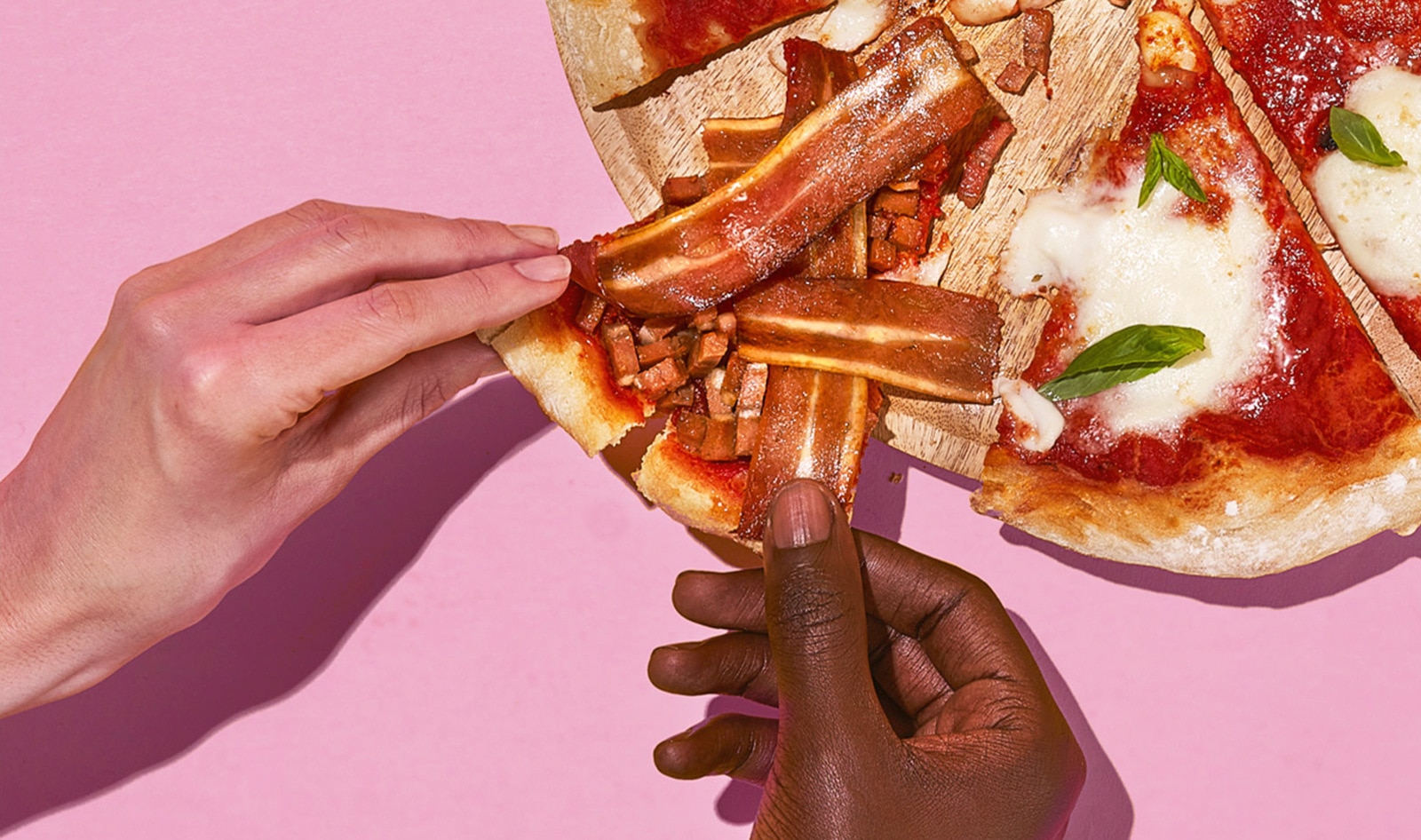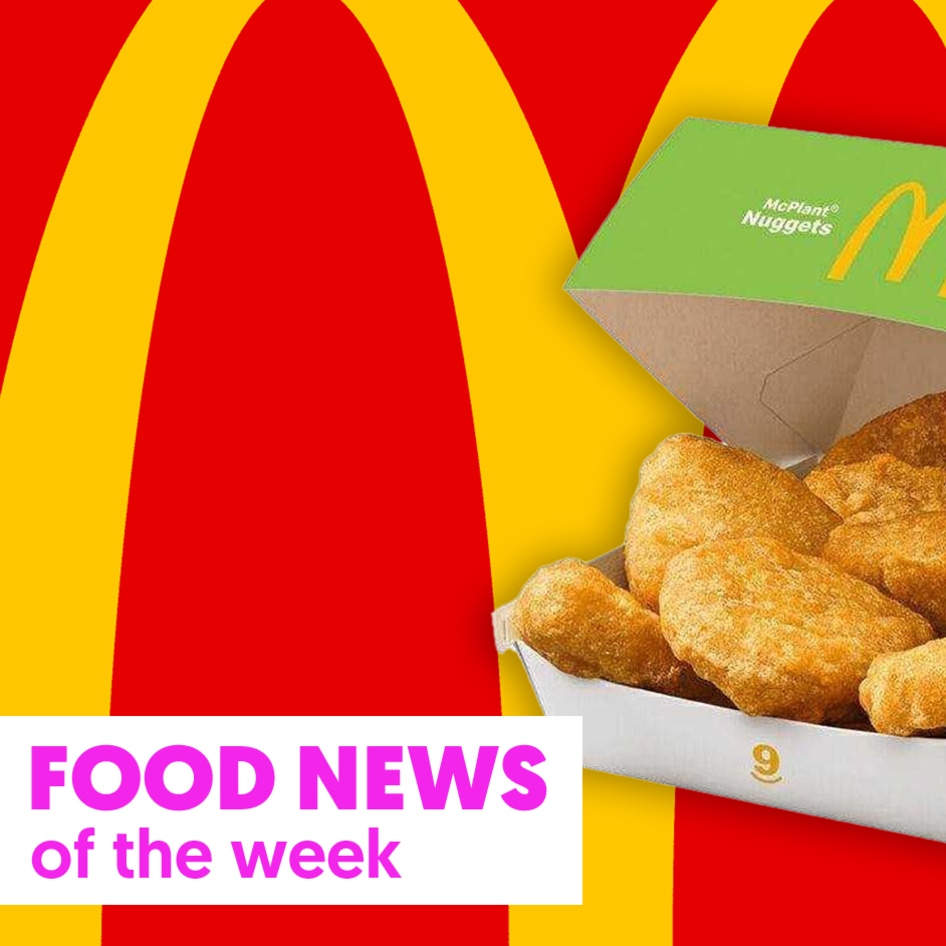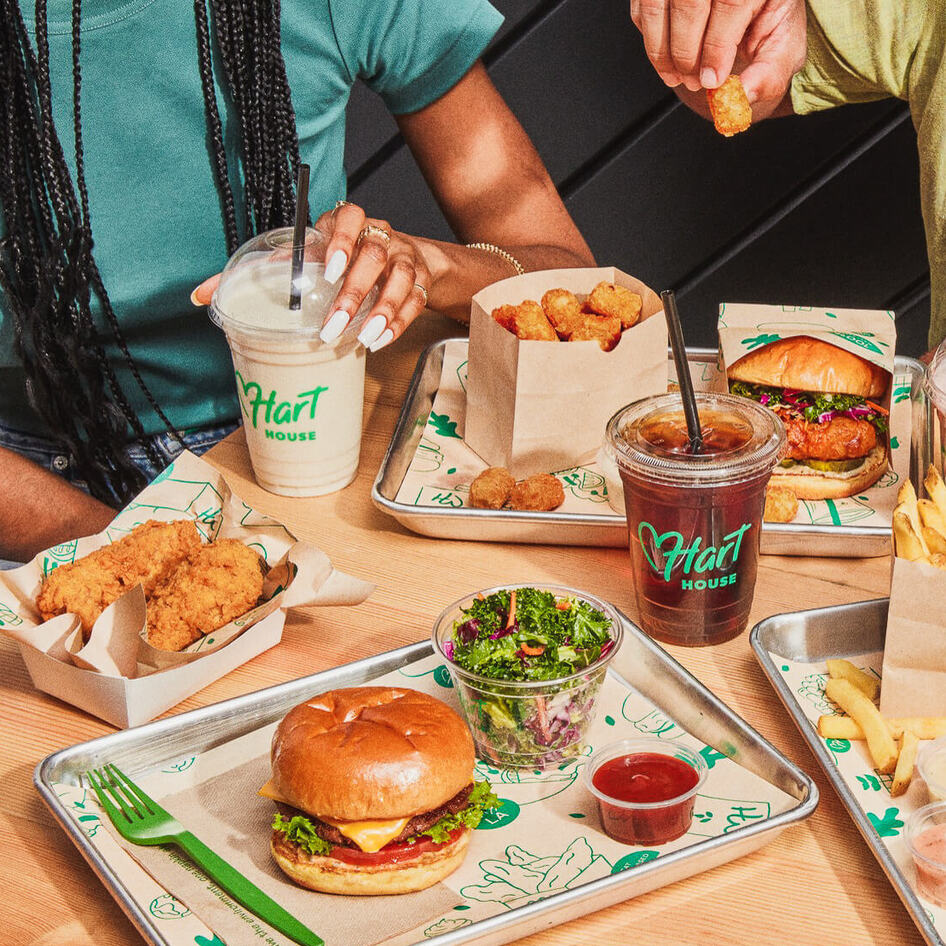Between its champagne and fromage, France is a stickler when it comes to food naming conventions and origins. But the growing plant-based movement has challenged its knee-jerk reaction to banning traditional “meaty” names on vegan products.
This May, France was initially set to ban the use of 21 such words, including “steak” and “ham,” on plant-based meat products. Violating this law would result in a fine of up to €7,500 ($7,999) per use. However, France’s highest court, the Conseil d’Etat, recently reversed this ban, citing that it would negatively impact specific businesses disproportionately, such as those that exclusively make vegan bacon.
 La Vie
La Vie
These types of bans have been championed by meat industry lobbies in other countries, including in South Africa where a similar ban was also recently dropped by the government. The reasoning behind these bans typically relies on some reference to consumer confusion around meaty words tied to plant-based meats, which is rarely substantiated.
“Consumers are simply not confused by the labeling of plant-based foods and efforts to restrict the plant-based industry represent a huge waste of time and resources,” Jasmijn de Boo, Global CEO of ProVeg International, said in a statement.
This regulatory shift paves the way for innovative growth within the global meat alternatives industry. In France, three companies are already making major strides in this space and in doing so, helping the country’s food system to become more sustainable.
 Umiami
Umiami
1Umiami
Whole-cut vegan meat maker Umiami recently opened a new manufacturing plant in Alsace, Eastern France. Supported by a €38 million ($40.5 million) investment—some of which came from the French government—Umiami is scaling up to meet demand across Europe and North America.
The company uses a proprietary “umisation” process that it developed over several years to create its whole-cut meats that do not rely on fillers, additives, or texturizing agents.
With a starting capacity of 7,500 tons of plant-based meat per year with potential expansion to 20,000 tons, the facility represents a significant step forward in the company’s growth. It also gives the region a boost of economic activity that is welcomed by officials.
“The establishment of the Umiami factory in the Grand Est region represents a substantial uplift for our area,” Franck Leroy, President of the Grand Est Region, said in a statement.
“Beyond job creation, this initiative showcases our commitment to fostering economic growth in our communities and driving forward the ecological transition,” Leroy continued.
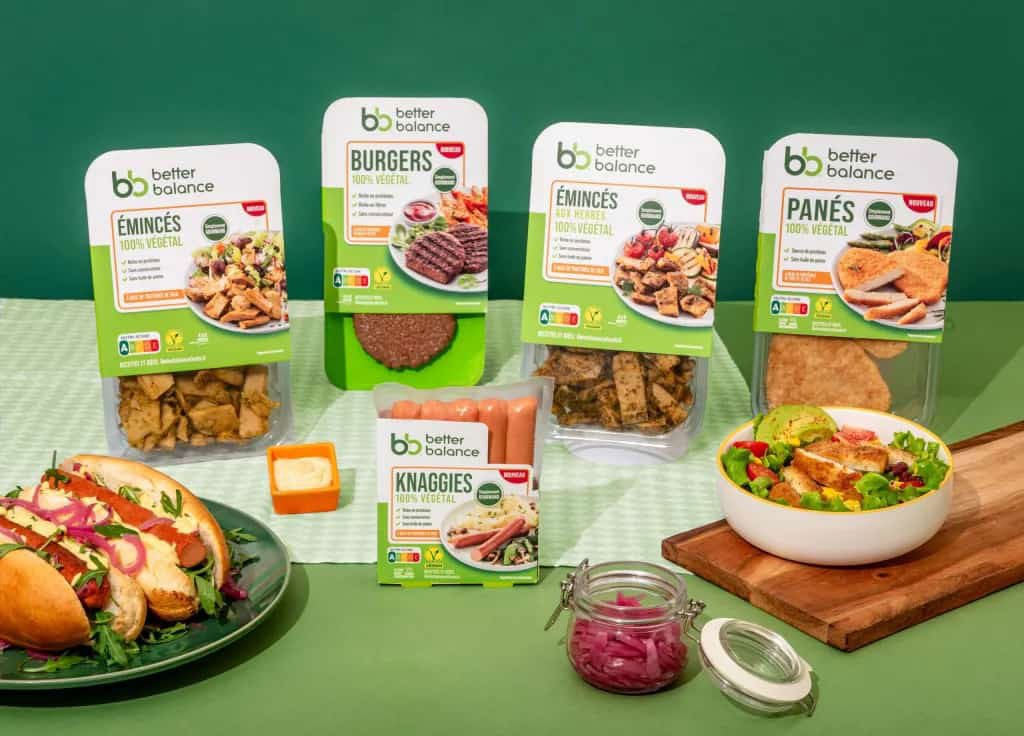 Aoste
Aoste
2 Aoste
For the last 47 years, Aoste has been in the business of traditional charcuterie, known for its variety of dried pork products. This year, the meat company ventured further into the plant-based market with a new Better Balance range that includes a variety of meat alternatives such as burgers, sausages, and breaded cutlets, made from a blend of soy, peas, wheat, and vegetable oil.
To modernize its portfolio, Aoste aims to capture a 10-percent market share in the plant-based sector by 2026, utilizing its strong brand presence and expertise in meat production to appeal to consumers seeking sustainable and ethical food choices.
“The plant-based segment remains incredibly enticing, with substantial untapped potential waiting to be discovered,” Helio Castaño, VP of Plant Based Global at Better Balance, said in a statement.
“Better Balance aims to meet the evolving consumer demands for taste, texture, ingredient transparency, and ease of preparation,” Castaño said.
Aoste’s approach includes a marketing campaign that leverages social media and influencer partnerships, indicating the company’s commitment to establishing a strong foothold in the plant-based market.
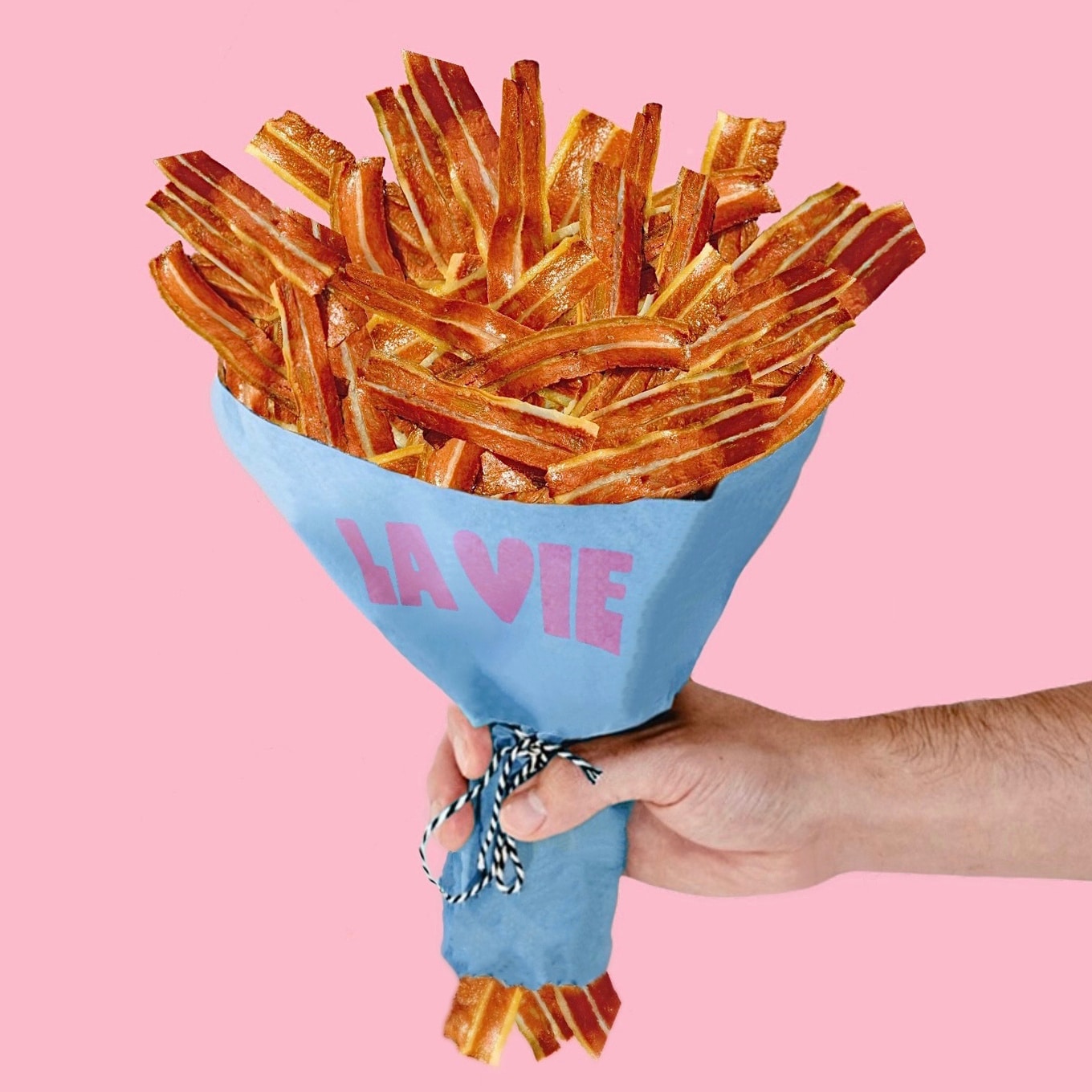 La Vie
La Vie
3La Vie
Backed by actress Natalie Portman, La Vie is a dynamic player in France’s plant-based sector and is well-known for its alternatives to pork and ham—and its creative marketing strategies.
The Paris-based company recently launched a successful line of vegan club sandwiches in French retail markets, featuring popular varieties like Le Parisien, Le Suédois, and Le British. These sandwiches, which include La Vie’s award-winning vegan bacon and ham, are proving immensely popular, with co-founder Nicolas Schweitzer saying they’re currently “selling like hotcakes” in retail outlets across France.
Adding to its impactful market presence, La Vie has also established a few notable partnerships. In 2022, the company successfully got its vegan bacon into Burger King’s plant-based burgers in France before expanding the offerings to the United Kingdom where vegan cheeseburgers are now an exciting option.
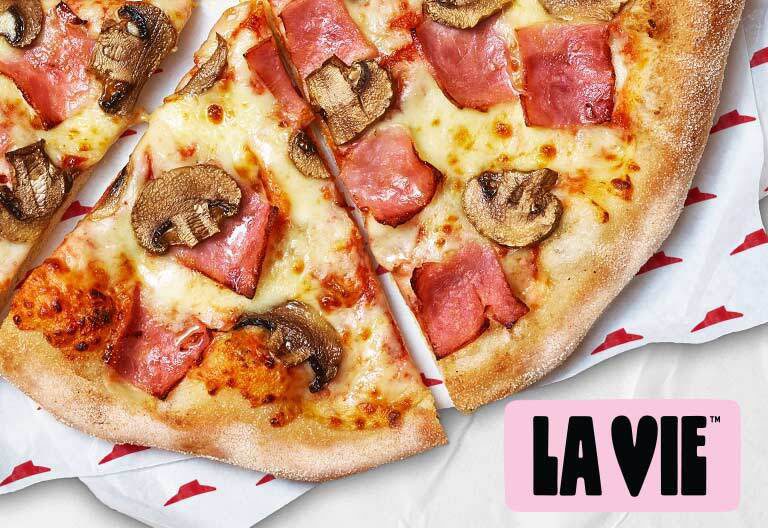 Pizza Hut France
Pizza Hut France
La Vie started 2024 off strong with a deal at Pizza Hut in France, which now offers La Vie’s plant-based ham as an on-demand option for all its dishes at no extra cost, signaling a significant advancement in mainstream chains embracing plant-based options.
“Pizza Hut France continues to innovate and doesn’t hesitate to break new ground,” Emilie Genty, Pizza Hut regional CMO, said in a statement.
“Once again, Pizza Hut France is thinking big by collaborating with La Vie, to offer a plant-based alternative to ham on all our ranges: our Pizzas, our Melts, our Pastas, and our starters,” Genty said.
In a one-day stunt, Pizza Hut replaced all of its ham with La Vie’s vegan version before putting both the animal and pea protein version on the menu. This move might be what’s confusing consumers most, not bacon, steak, or ham clearly labeled as vegan or plant-based.
For more plant-based stories like this, read:
JUMP TO ... Latest News | Recipes | Guides | Health | Shop

